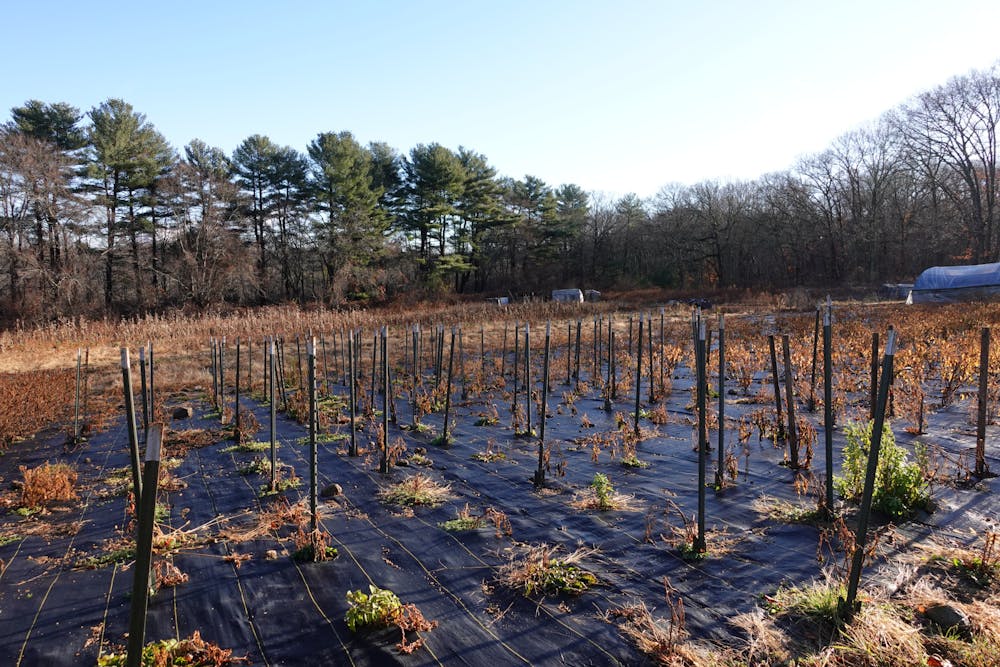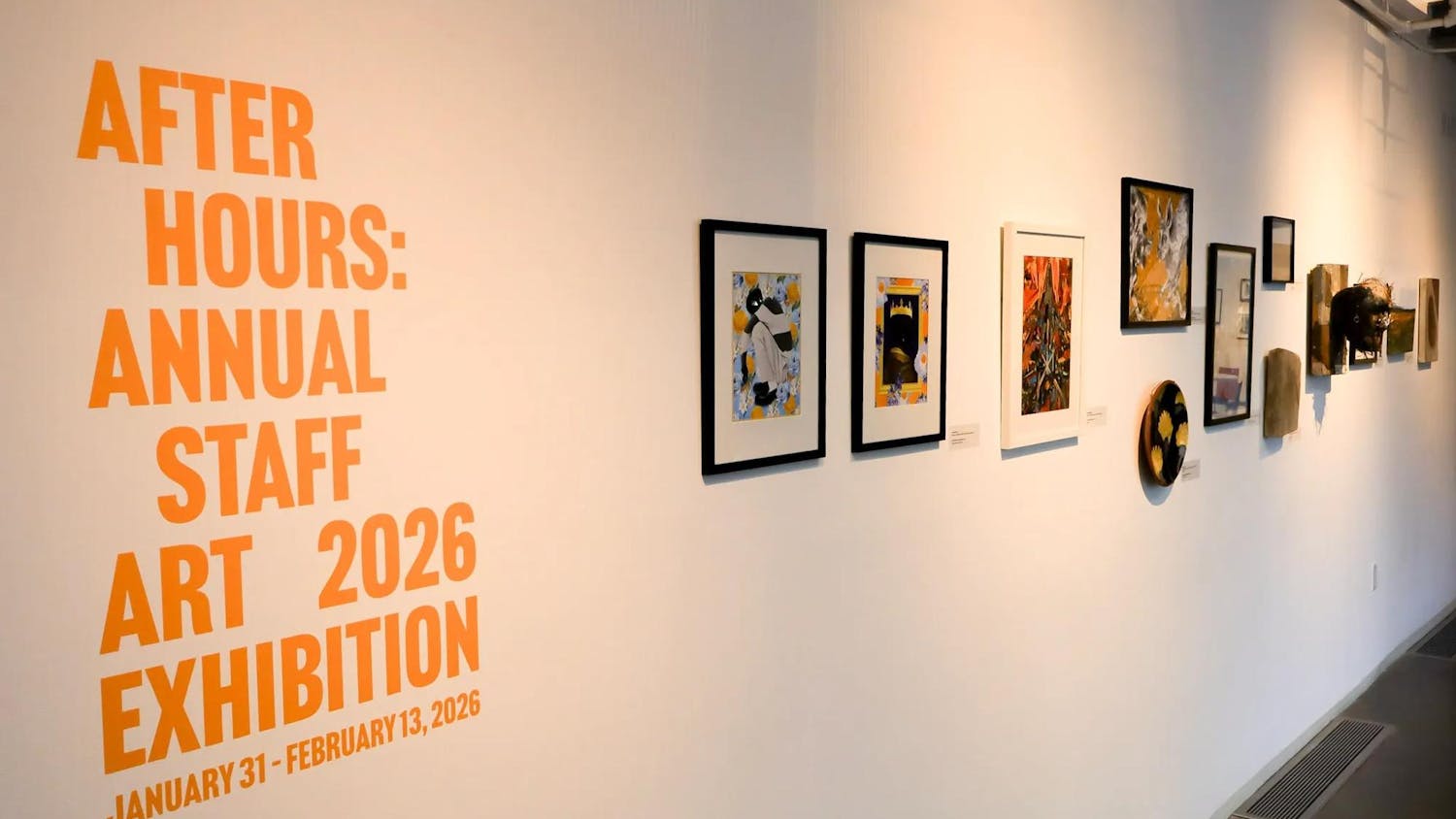In 1981, Hmong refugees and residents of the South Side of Providence collaborated with three Brown students to create a space to grow nutritious food, establishing the Southside Community Land Trust.
Today, SCLT is a nonprofit organization that manages over 60 community gardens and urban farms throughout Rhode Island. It supports farmers and growers as they generate produce for their neighborhoods and local farmers markets in Providence, Pawtucket and Central Falls.
By providing “inexpensive land and agricultural resources” to residents, SCLT empowers community members to grow food for themselves and their communities, while generating income at seasonal farmers’ markets, according to the organization’s website.
“I remember going into the backyard for the first time with my folks, and wrapping our heads of lettuce, picking tomatoes and making a salad,” SCLT Food Access Associate Amelia Lopez told The Herald.
“SCLT’s goal is to make fresh, nutritious food abundant and affordable so that everyone in our state, regardless of income, can eat well and live well,” according to the organization’s homepage.
SCLT’s mission statement says combatting food insecurity — which the organization describes as “inconsistent access to adequate nutritional foods” — drives its pursuit of supporting the health and wellness of urban neighborhoods.
According to SCLT’s website, without access to fresh produce, Rhode Island residents with lower incomes may purchase processed, frozen and microwavable foods since they are more affordable and readily available, despite the adverse health effects they may cause.
“Buying veggies is not the same as walking outside and grabbing what you need while eating it fresh,” said Lopez, whose mother and stepfather are growers for SCLT. “It sounds simple. But when you experience it, it’s so much more gratifying.”
Lopez’s stepfather Teodulio Martinez, who immigrated to Rhode Island from the Dominican Republic in 2013, was farming in his yard when someone from SCLT saw him and offered him a plot of land at Urban Edge Farm — one of SCLT’s largest properties — to expand his efforts.
In a study from the Rhode Island Community Food Bank, one in three of all Rhode Island households and over 40% of Black and Latino households reported experiencing food insecurity in 2022. Many of the growers in SCLT are people of color, including refugees and immigrant farmers. According to SCLT’s 2021-2022 annual report, 34 languages were spoken on their farms in 2021.
Due to the language barrier this creates, “for some farmers, the way that we can ask them to get us 50 bunches of kale is by texting their daughter,” Lopez said. “That’s just how we communicate. And I've had to do that for my parents before.”
According to a study by the Rhode Island Community Food Bank and the School of Public Health Survey Research Center, “45% of low-income households reported having to choose between paying for housing or paying for food at least once in the last 12 months.” Additionally, 85% of SCLT growers live below the poverty line, according to the annual report.
Both figures continue to motivate SCLT’s mission to provide low-income families with tools to address food insecurity.
SCLT has also spearheaded an array of youth programs to ensure that children from lower-income neighborhoods receive the education and support needed to care for the environment and their health.
“There is immense power in giving food out of love and not out of anger,” said Raffini, the youth program director of SCLT.
Though Raffini started as SCLT's youth program director in 2019, she has been an educator for the last 40 years, teaching gardening workshops for SCLT growers since the 1980s.
In her current role, Raffini teaches children to grow healthy food, allowing them to participate in the process of growing an array of fruits and vegetables that they can take home to their families each week.
“It is important to remember who we are growing for (and) who we are feeding, so we can grow the foods that they are used to,” Raffini said. Recently, she has been “psyched” about tropical foods — like passionfruit and sugar cane, which are typically not grown in Rhode Island — appearing in the gardens, since these foods are culturally familiar to many of the immigrant families to which SCLT provides produce.
Though the growing season is currently not at its peak, The Herald toured Urban Edge Farm in Cranston, Rhode Island to get a glimpse into the inner workings of SCLT.
At over 50 acres, Urban Edge Farm supports nearly 50 farmers as they grow everything from corn to kale in their plots, greenhouses and high tunnels across the facility.
“It’s impossible to exist without each other,” Lopez said, pointing out the contraptions U.S. farmers invented that SCLT growers have implemented at UEF to make their day-to-day work easier.
From attaching an air conditioner to an old truck to create incubators to keep produce fresh to using repurposed barrels and washing machines to wash carrots and kale more efficiently, like farmers across the country, SCLT’s growers are “innovators,” Lopez said. She added that they help one another make their labor more efficient so the community as a whole can benefit.
“I don’t think we talk about Rhode Island’s history enough, why the second you step out of Providence, there is so much farmland that covers the entire state,” Lopez said. “Now SCLT growers are reshaping that history by growing, planting and producing food to help benefit their communities."
SCLT is continuing to expand its efforts to help underserved communities in Rhode Island through its new property at 404 Broad St., which hosts a commercial kitchen for growers and three healthy restaurant spaces dedicated to providing jobs to South Side residents. Their second annual holiday bazaar will also take place this Saturday, where visitors can buy produce and engage in the community that SCLT supports.

Sanai Rashid lives in Long Island, New York. As an English and Economics concentrator, she is passionate about storytelling and how numbers and data create narratives in ways words alone cannot. When she is not writing, you can find her trying new pizza places in Providence or buying another whale stuffed animal.





